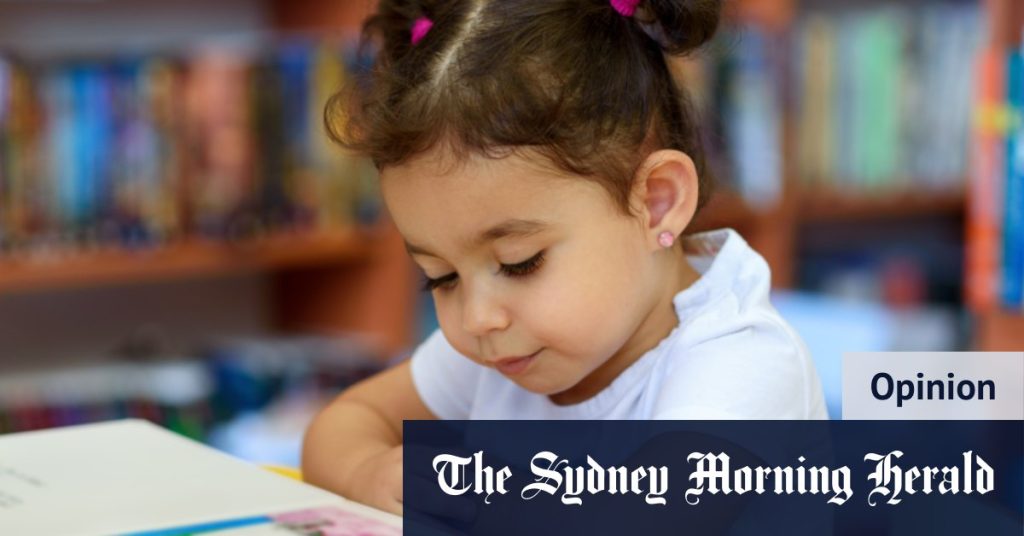An inner west school community is questioning a new policy that requires kindergarten reading to be done on a screen, despite their efforts to limit screen time for their children. Parents are concerned about the potential negative effects of extended screen exposure at a young age, including decreased parent-child interaction and its impact on language development and literacy. Research conducted by the World Economic Forum in 2021 found that reading physical books with young children resulted in more engaging interactions and benefits for overall child development compared to reading on a tablet.
The study highlighted the importance of parent-child interactions during shared reading, as they promote language development, literacy, and other positive outcomes later in life. This research, along with other studies, suggests that physical books are the best choice for young children, followed by audio books, with tablets falling behind as the least beneficial option. American education academic Maryanne Wolf underscores the importance of print in fostering deep reading processes and raising concerns about the passive nature of learning on tablets, which may hinder children’s ability to focus and engage with material.
The decision to require kindergarten reading to be done on a screen has sparked debate within the school community, especially among families who prioritize the value of physical books. Parents point out the unique interactions that occur when reading physical books with their children, noting increased engagement and dialogue compared to reading on electronic devices. They worry that the new policy may hinder the development of important skills, such as focus and deep reading, that are nurtured through traditional books.
Despite the potential benefits of incorporating technology into learning, there are valid concerns about the impact of screen time on young children’s development. The school community’s questioning of the new policy reflects broader conversations around the use of screens in early childhood education and the importance of prioritizing meaningful interactions between parents and children through shared reading. Research indicates that physical books offer unique advantages for young children, supporting language development, literacy, and overall child development outcomes in ways that tablets may not replicate.
In considering the implications of the new policy, parents and educators are grappling with questions about the role of technology in early childhood education and the potential trade-offs between engagement and distraction. American education academic Maryanne Wolf’s insights underscore the importance of preserving the deep reading processes facilitated by print materials and the potential drawbacks of relying too heavily on screens for learning. As the school community navigates these discussions, they are highlighting the value of physical books in fostering meaningful parent-child interactions and supporting children’s overall development.
Ultimately, the debate over the use of screens for kindergarten reading highlights larger questions about the balance between technology and traditional learning methods in early childhood education. As parents and educators weigh the potential benefits and drawbacks of screen time for young children, they are advocating for policies that prioritize meaningful interactions and support the development of essential skills through traditional reading materials. The research on parent-child interactions during shared reading underscores the unique benefits of physical books for language development, literacy, and overall child development outcomes, prompting important dialogue within the school community about the best approaches to early childhood education.


